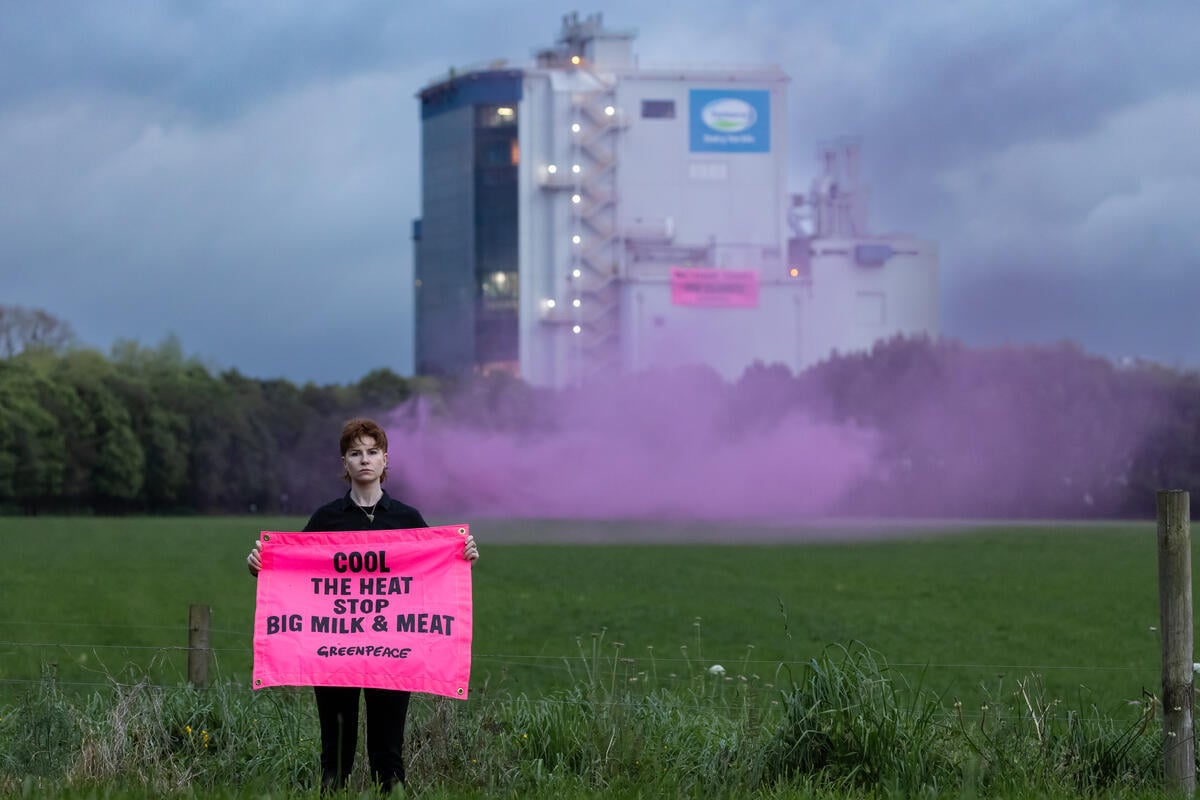Auckland, New Zealand – New Zealand’s government has confirmed it will rewrite its climate law to weaken the country’s methane emissions target – a move Greenpeace warns will violate the Paris Agreement and embolden other major meat and dairy producers and exporters, including Ireland and Uruguay, to follow suit.
Shefali Sharma, Global Agriculture Campaigner, Greenpeace Germany said: “New Zealand has signalled to the world’s biggest meat and dairy producers that it’s fine to ignore the largest human-made source of methane – and in doing so, undermine the Paris Agreement and accelerate global heating. Other major livestock exporting countries will now feel empowered to follow suit, which risks sparking a race to the bottom and threatens to derail global climate action.”
“This decision by the New Zealand government pretends that current methane emissions from agriculture aren’t fuelling the climate crisis – despite overwhelming scientific consensus that drastic methane cuts are essential to prevent us from sweeping well past 1.5°C. This is a dangerous sleight of hand, and it delays the urgent action needed.”
Amanda Larsson, Senior Campaign Manager, Greenpeace Aotearoa said: “The New Zealand Government is going full-Trump when it comes to climate change – and the rest of the Pacific region is threatened as a result.”
The move means New Zealand will adopt a “no additional warming” methane goal – a dairy industry-backed metric that permits continued high levels of agricultural methane emissions, despite warnings from climate scientists and the country’s independent Climate Change Commission that emissions must fall sharply.[1]
ENDS
Notes:
[1] Financial Times, Scientists accuse New Zealand and Ireland of trying to cover up livestock emissions, 1 June 2025.
Greenpeace Aotearoa briefing on ‘no additional warming’ methane targets: GWP*: how the livestock lobby’s creative accounting threatens to derail climate action.
Methane is responsible for nearly 30% of current global warming and is over 80 times more powerful than CO₂ over 20 years. Cutting it is the fastest way to slow warming.
New Zealand is the world’s largest dairy exporter. Its agriculture sector accounts for nearly half of the country’s greenhouse gas emissions, with livestock methane being the major source. Trade agreements with the UK and EU include commitments to uphold the Paris Agreement.
The “no additional warming” approach has been promoted by livestock industry groups in other major exporting nations, including Ireland and Uruguay.
Contacts:
Rhiannon Mackie, Communications Specialist, Greenpeace Aotearoa (New Zealand), [email protected], +64-27-244-6729
Stephen Bateman, Communications Lead, Greenpeace International, [email protected], +44 07361 651 868
Greenpeace International Press Desk, +31 (0) 20 718 2470 (24hrs), [email protected]
Source link
Greenpeace International www.greenpeace.org

